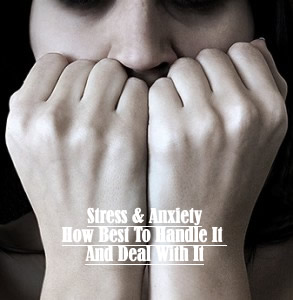The urge to know about something that is going to happen in the future gives way to anxiety, which is quite normal. But, when this urge grows abnormally, and you start worrying and adding to the tensions chronologically, it leads to anxiety disorder. Gradually, you also start facing many other physical and psychological symptoms. And it’s vital to identify and list out all the symptoms to be aware of them in order to prevent and cure anxiety disease.
According to the recent analysis, it has been observed that people suffering with anxiety disease have psychological symptoms like fear of losing control, agoraphobia, insomnia, hyperactivity, depersonalization, aggression, depression with suicidal feelings, and increase in sexual feelings. The physical symptoms that have been noticed are palpitations, chest pain, difficulty swallowing, excessive sweating, increased sensitivity to light, sound, touch, and smell, dry mouth, problems while breathing, difficulties with hearing, distorted vision, sore eyes, 'pins and needles' sensations in the skin, tingling sensation in arms, hands and feet, indigestion, constipation and diarrhea.
Out of all the symptoms screened above, the six prominent and most occurring symptoms of the anxiety disease are restlessness, sleeping disorders, depression, tension, palpitation and wooziness. Here we are discussing more about these symptoms to raise the awareness among more people and help them to recognize them and take proper actions when required.
Restlessness
Those people, who are undergoing consecutive bad phases in life, spend most of their time thinking about their past and their future. The process of thought gradually advances to uncontrollable obsessive thoughts in which the person’s imagination goes wild and beyond reality. They keep worrying all the time making themselves uneasy and agitated. This causes irritation and they lose their patience very often. Fidgetiness and being restless enters their normal behavior zone and thus causes anxiety disease.
Sleeping Disorders
People suffering with anxiety disease are often occupied with their imaginary thoughts and when their body requires sleep, they find themselves in great trouble and they are not able to even sleep properly. While sleeping, they keep getting disturbed with bizarre and scary dreams. Some suffer with insomnia, waking up in between due to a panic attack. This entirely ruins your sleep and makes you feel worse throughout causing sleeping disorders. Such sleeping disorders which stay for a longer period aggravates the anxiety disease further.
Depression
Depression is considered to be the most common symptom for anxiety disease. Due to traumatic incidents in the past, repetitive occurrences of embarrassing situations or consecutive failures or harassments, people tend to become pessimistic and suffer with an inferiority complex. They lose their hope and belief in everything. The snowball thoughts initiated by depression indicates the presence of anxiety disorder in an individual.
Tension
When you find yourself under immense stress and you are not ready to carry it, then you get yourself into tension by trying to get rid of the pressure. Any unexplained fear or insecurity also leads to tension, which might not be visible but leaves severe effects on your mind and body. The fear overtakes your mind and you are compelled to think about the future which most of the times are imaginary and cause anguish and anxiety.
Palpitations
People suffering with anxiety disease also come across situations wherein their mind gets stuck with an imaginary question or due to scary thoughts, which causes palpitations and you can feel the pounding of your heart hard in your chest. This also causes pain in your chest and excessive sweating.
Wooziness
As an outcome of the anxiety disease, you will suddenly feel light headed or you will feel as if you are going to faint, which is sometimes accompanied by nausea or abdominal pain. This might happen because of fear, stress or lack of rest.
These symptoms will vary from people to people according to the type, intensity and frequency of anxiety.
Your best bet if you have any of the above symptoms is to see your Doctor as soon as possible and explain the feelings to them. They are in a better position to help
Monday, 1 March 2010
6 Well Known Symptoms of Anxiety Disease
Subscribe to:
Post Comments (Atom)


No comments:
Post a Comment